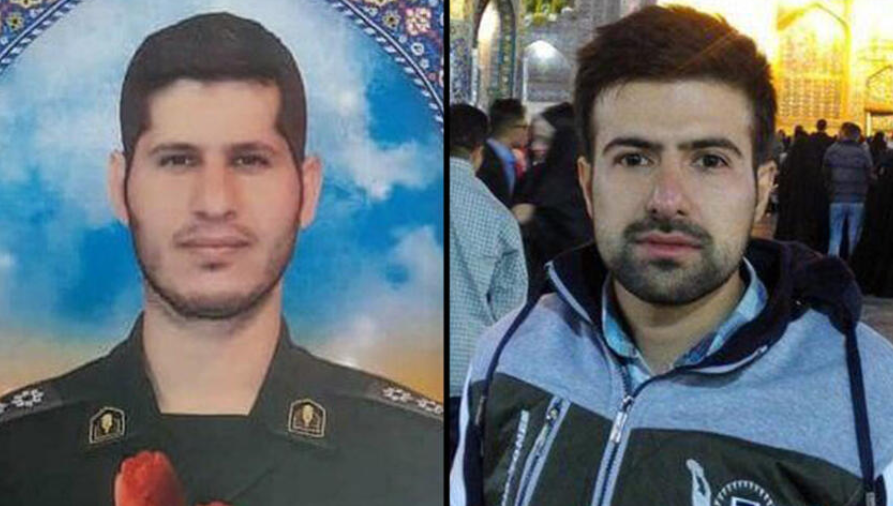
Funeral of Iran’s President Ebrahim Raisi
On 19 May 2024, a helicopter crash killed Iran’s President Ebrahim Raisi, Foreign Minister Hossein Amir Abdollahian and other officials. The delegation was returning after inaugurating the Qiz Qalasi Dam, constructed on the Aras River along Iran’s border with neighbouring Azerbaijan.
The initial reaction of many was to see the pattern of a conspiracy and even a coup attempt to bring about regime change. There are, however, no other signs that would confirm a calculated assassination. On the contrary, the authorities are demonstrating a degree of calm and seem to be on top of various processes. Experts agree that it was always conceivable that an old helicopter could crash in the adverse weather conditions that were experienced that day in such a mountainous region.
On 21 May, the Constitutional transition process started: First vice president, Mohammad Mokhber, assumed presidential responsibilities and then the heads of the three branches of power — Mokhber; Majles Speaker Mohammad Baquer Qalibaf; and Mohseni Ejeie who heads the Judiciary — agreed that presidential elections will take place and Friday 28 June. Candidates will be able to nominate themselves in early June.
One of the indicators of a perceived crisis in Iran has always been the free-market exchange rate. Interestingly, on 19 May, the day of the accident, the rate was above IRR 610,000 to the US$, but by 22 May the Rial had appreciated to around IRR 570,000. This may have been the consequence of the Central Bank of Iran intervening and injecting hard currency into the market, but the fact is that the authorities are managing the process and focusing on preventing a crisis.
The country is still in the official five-day mourning period, but the political consequences of Raisi’s death are emerging. Although all key political, security and strategic decisions are made in various councils — most importantly in the Supreme National Security Council — the absence of Raisi’s and also Amir Abdollahian’ will certainly shift the balance of power.
The first impact emerged on 20 May, when the recently elected Assembly of Experts convened for the first time. Raisi was one of the leading candidates to assume the chairmanship of the Assembly which will eventually select a successor to the 85-year-old Supreme Leader Ayatollah Ali Khamenei. The new chairman is Ayatollah Movahedi Kermani, an arch-conservative who will have an influence on the process of succession.
Raisi was also repeatedly mentioned as a favourite candidate to succeed Khamenei but it was never been a foregone conclusion and a lot can happen in the meantime.
The key process one should focus on in the immediate future is the unfolding of the new presidential race which will reflect how the domestic political scene will develop in the next few months and in the run-up to the succession issue. Two potential scenarios could emerge:
- The hardline factions will continue with the tight control over the domestic scene and will not allow any moderate candidates to run for president. This will damage the regime’s legitimacy and the voter turnout will be very low as it was in the 1 March 2024 election to the Majles. The objective of this approach will be to fully control the transition process to the next Supreme Leader at the expense of regime legitimacy.
- A second and more optimistic scenario could emerge, if Ayatollah Khamenei decides to use the opportunity to open up the political sphere and allow moderate forces to participate. Interestingly, by law, former president Hassan Rohani (2013-2021) should be allowed to run. There is no doubt that such a move, though less likely, would restore some of Iran’s lost legitimacy of the past few years.
Considering the fact that elections are about six weeks away, only well-established political actors will have a chance to run a successful campaign. One such candidate would be the outgoing Majles Speaker, Mohammad Bagher Qalibaf, who has a trusted network. However, the corruption allegations against him and his son may undermine his chances. The current acting president, Mohammad Mokhber, and also the hardline Mayor of Tehran, Alireza Zakani, are also potential candidates.
If the second scenario emerges, we will have surprise candidates. One moderate candidate that is considering to run, is Majid Ansari — a cleric and member of the Expediency Council — who is closely affiliated with former reformist president, Mohammad Khatami (1997-2005).
The approach and the result of the upcoming presidential elections will strongly shape the political dynamics and will have an impact on two processes:
- Iran-US dialogue: It is now a known fact that the indirect dialogue between Tehran and Washington has continued. Evidently, the election and empowerment of an Iranian president who would be more acceptable to President Joe Biden’s administration, could pave the way for some interesting openings in the next few months. It should also be noted that after the death of Amir Abdollahian, Ali Bagheri-Kani will be the caretaker of the foreign ministry and will probably continue his indirect diplomacy.
- Succession Issue: With Raisi’s death, the field of potential candidates for the next Supreme Leader has dramatically changed. If the next president is a cleric, then many will look at the possibility of him becoming a candidate, but it is too early to say.
All in all, the recent event will present challenges to the political developments in Iran, but there are no signs that we will see an irreparable dent in the political dynamics. It is a disruption that will require some important changes, but not a complete overhaul.
Bijan Khajehpour
Senior Advisor, Menas Associates
For further expert analysis on Iran please contact info@menas.co.uk



